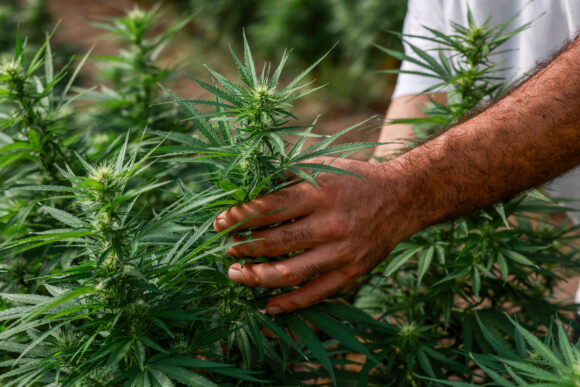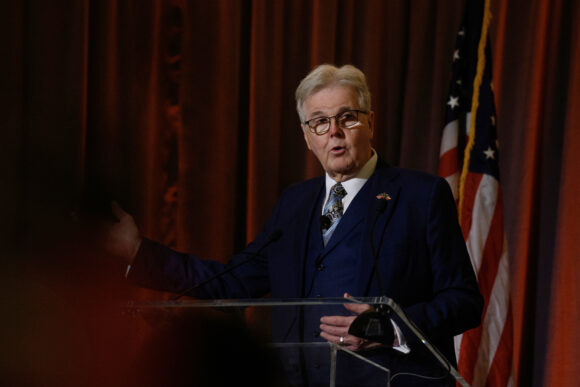Texas is on the cusp of banning all recreational THC products after lawmakers passed a bill to reverse the unintended effects of hemp laws that led to a boom in shops selling gummies, joints, vapes and drinks that create a similar high to marijuana.
The proposal, awaiting Governor Greg Abbott’s signature, would outlaw almost all consumable hemp products except for non-psychoactive CBD and CBG. A separate measure expanding the state’s medical use program for THC — the psychoactive molecule found in marijuana and at weaker concentrations in hemp — is also nearing final approval.
Texas is seeking to limit the effects of the federal government’s 2018 Farm Bill, supported by President Donald Trump and then-Senate Majority Leader Mitch McConnell, that expanded hemp production across the country. But savvy business people realized that it also made it legal to sell intoxicating products with hemp, creating a new industry in places where marijuana was banned. In 2019, Texas passed its own bill regulating state hemp production, but the law did nothing to limit the types of products that are now being sold.
The Food and Drug Administration hasn’t established comprehensive regulations for finished hemp products, leaving it to states to handle an influx of consumables with cannabis compounds like THCa and delta-8. Utah and North Dakota, for example, have banned all forms of hemp-derived THC, while Florida Governor Ron DeSantis last year vetoed a bill that aimed to significantly restrict sales.

The federal hemp bill and lack of national regulation has left a vacuum for states, according to Shawn Hauser, an attorney and partner at Vicente LLP specializing in cannabis law.
“It’s like they legalized hops and directed an agency to regulate beer, and that never happened,” she said.
Retail “smoke shops” selling intoxicating products are now found throughout Texas. Hemp-derived cannabinoids generated $4.3 billion in sales and supported 53,300 jobs last year in Texas, according to a study by Whitney Economics cited by Hometown Hero, which sells the products.
Texas Lieutenant Governor Dan Patrick has made the THC ban a priority and worked to draw attention to the issue in recent weeks, lamenting minors’ access to the products, citing health concerns about their safety and visiting smoke shops around Austin. Last week, as the legislative session neared its end, he hosted a press conference promising “end-of-session beverages and snacks,” which turned out to be a table of THC-infused gummies, snacks and drinks.

Patrick’s push has drawn opposition from some businesses in the state. During the press conference, he held up a bag of cereal-flavored edibles made by Hometown Hero and said they are so dangerous to users they could “kill them or ruin their mental state for the rest of their lives.” Lukas Gilkey, the company’s chief executive officer, defended his company in a video response.
Abbott hasn’t commented publicly on the proposed ban. Spokesman Andrew Mahaleris said the governor “will thoughtfully review any legislation sent to his desk.”
Farmers planted 4,900 acres (1,980 hectares) of hemp in Texas in 2024, up from 250 acres the year before, according to the Texas Farm Bureau.
The state now has almost twice as many dispensaries as California, Hauser said. While the ban is intended to crack down on products that have exploited the FDA “loophole,” Hauser predicted it would push consumers into illicit markets.
“It’s going to result in a public safety crisis, which is perverse for the problem it’s trying to fix,” she said.
Was this article valuable?
Here are more articles you may enjoy.


 Judge Tosses Buffalo Wild Wings Lawsuit That Has ‘No Meat on Its Bones’
Judge Tosses Buffalo Wild Wings Lawsuit That Has ‘No Meat on Its Bones’  State Farm Adjuster’s Opinion Does Not Override Policy Exclusion in MS Sewage Backup
State Farm Adjuster’s Opinion Does Not Override Policy Exclusion in MS Sewage Backup  Preparing for an AI Native Future
Preparing for an AI Native Future  Former Broker, Co-Defendant Sentenced to 20 Years in Fraudulent ACA Sign-Ups
Former Broker, Co-Defendant Sentenced to 20 Years in Fraudulent ACA Sign-Ups 

